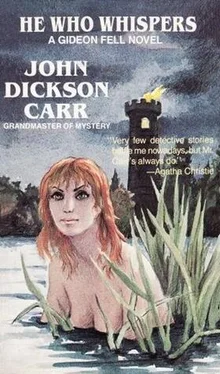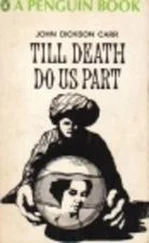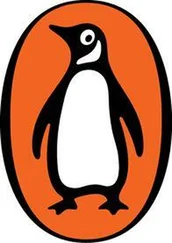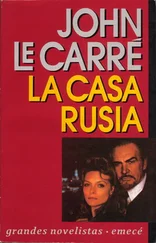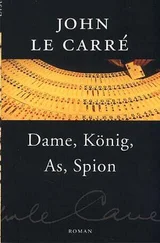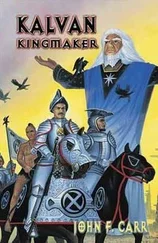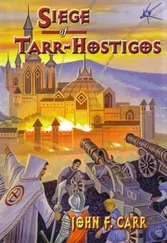“The same criminal?” cried Barbara.
And Dr. Fell nodded.
“The first,” he said, “was unpremeditated and slap-dash; it became a miracle in spite of itself. The second was planned and careful, bringing a bit of the dark world into our lives! Shall I continue? ”
Chapter XIX
Absently Dr. Fell was filling his meerschaum pipe as he spoke, the manuscript and the photograph and the letter still on his knee, and his eye fixed drowsily on a corner of the ceiling.
“I should like, with your permission, to take you back to Chartres on the fateful twelfth of August when Howard Brooke was murdered.
“Now I am no orator, as Rigaud is. He could describe for you, in stabbing little phrases clustered together, the house called Beauregard, and the winding river, and Henri Quatre's tower looming over the trees, and the hot thundery day when it wouldn't quite rain. In fact, he had done so.” Dr. Fell tapped the manuscript. “But I want you to understand that little group of people at Beauregard.
“Archons of Athens! It couldn't have been worse.
“Fay Seton had become engaged to Harry Brooke. She had really fallen in love—or had convinced herself she had—with a callow, coldhearted young man who had nothing to recommend him except his youth and his good looks. Do you remember that scene, described by Harry to Rigaud, in which Harry proposes marriage and is at first rejected?
Again Barbara protested.
“But that incident,” she cried, “wasn't true! It never happened!”
“Oh, ah,” agreed Dr. Fell, nodding with some violence. “It never happened. The point being that it might well have happened in every detail. Fay Seton must have known, in her heart of hearts, that with all her good intentions she couldn't marry anybody unless she wanted to wreck the marriage in three months by her . . . well, let it pass.
“But this time—no! This time is different. We have changed all that. This time she is really in love, romantically as well as physically, and it will work out. After all, nobody has been able to say a word against her since she has come to France as Mr. Brooke's secretary.
“And all this time Harry Brooke—never seeing anything, drawing on what Harry thinks is his imagination—had been driving his father to distraction with anonymous letters against Fay. Harry's only concern was to get his own way; to get to Paris and study painting. What did he care for a rather silent, passive girl, who tended to draw away from his embraces and remained half cold when he kissed her? Thunderation, no! Give him somebody with a bit of life!
“Irony? I rather think so.
“And then the figurative storm broke. On the twelfth of August, somebody stabbed Mr. Brooke. Let me show you how.”
Miles Hammond turned round abruptly.
Miles walked over and sat down beside Professor Rigaud on the edge of the bed. Neither of these two, though for different reasons, had spoken a word in some time.
“Yesterday morning,” pursued Dr. Fell, putting down his filled pipe to pick up the sheaf of manuscript and weigh it in his hand, “my friend Georges Rigaud brought me this account of the case. If I quote from it at any time, you two others will perhaps recognize that Rigaud used exactly the same words when telling it you verbally.
“He also showed me a certain sword-stick of evil memory.” Dr. Fell blinked across at Professor Rigaud. “Have you—harrumph--by any chance got the same weapon here now?”
With an angry, half-frightened gesture Professor Rigaud picked up the sword-cane and flung it across the room. Dr. Fell caught it neatly. But Barbara, as though it had been attack, backed away against the closed door.
“Ah, zut!” cried Professor Rigaud, and shook his arms in the air.
“You doubt my remarks, sir?” inquired Dr. Fell. “You did not doubt when I gave you a very short sketch earlier today.”
“No, no, no!” said Professor Rigaud. “What you say about this woman Fay Seton is right , is absolutely right. I claim a point when I said to you that the characteristics of the vampire are also in folklore the characteristics of eroticism. But I kick me the pants because I, the old cynic, do not see all this for myself!”
“Sir,” returned Dr. Fell, “you acknowledge yourself that you are not much interested in material clues. That is why, even when you were writing about it, you failed to observe . . .”
“Observe what?” said Barbara. “Dr. Fell, who killed Mr. Brooke?”
Outside there was a distant crash of thunder, which made the window-frames vibrate and startled them all. The rain, in this wet June, was going to return.
“Let me,” said Dr. Fell, “simply outline to you the events of that afternoon. You will see for yourselves, when you dovetail the story of Professor Rigaud with the story of Fay Seton herself, what deductions are to be drawn from them.
“Mr. Howard Brooke returned to Beauregard from the Credit Lyonnais bank about three o'clock, carrying the brief-case with the money. The events of the murder properly begin then, and we can follow them from there. Where were the other members of the household at this time?
“At just before three o'clock Fay Seton left the house, carrying bathing-dress and towel, to go for a walk northwards along the river bank. Mrs. Brooke was in the kitchen, speaking to the cook. Harry Brooke was—or had been—upstairs in his own room, writing a letter. We know now that it was this letter.”
Dr. Fell held up the letter.
With a significant grimace he continued:
“Mr. Brooke, then, returned at three and asked for Harry. Mrs. Brooke replied that Harry was upstairs in his own room. Harry in the meantime, believing his father would be at the office (as Rigaud did too; see testimony) and never dreaming he might be on his way home, had left the letter unfinished and gone to the garage.
“Mr. Brooke went up to Harry's room, and presently came down again. Now we see—just here—the curious change in Howard Brooke's behavior. He wasn't frantically angry then, Howard Brooke's behavior. He wasn't frantically angry then, as he had been before. Listen, from the evidence, to his wife's description of his manner as he came down the stairs: 'so pitiful he looked, and so aged, and walking slowly as though he were ill.'
“What had he found, up there in Harry's room?
“Oh Harry's desk he saw an unfinished letter. He glanced at it; he glanced at it again, startled; he picked it up and read it through. And his whole honest, comfortable universe crashed down in ruins.
“Carefully outlined, in closely written pages to Jim Morell, was a resume of Harry's whole scheme to blacken Fay Seton. The anonymous letters; the discreditable rumours; the vampire hoax. And all this was written down by his son Harry—his absolute idol, that hearty innocent—so that the father should be filthily tricked into giving Harry his own way.
“Do you wonder that it struck him dumb? Do you wonder that he looked like that as he walked downstairs, and slowly—how very slowly!--out along the river-bank towards the tower? He had made an appointment with Fay Seton for four o'clock. He was going to keep that appointment. But I see Howard Brooke as a thoroughly honest man, a straight-forward man who would loathe this worse than anything Harry could have done. He would meet Fay Seton at the tower, all right. But he was going there to apologize.
Dr. Fell paused.
Barbara shivered. She glanced at Miles, who sat in a kind of trance, and checked herself from speaking.
“Let us return, however,” pursued Dr. Fell, “to the known facts. Mr. Brooke, in the tweed cap and raincoat he had been wearing at the Credit Lyonnais, went towards the tower. Five minutes later, who turned up? Harry, by thunder!--hearing that his father had been there, and asking where he was now, Mrs. Brooke told him. Harry stood for a moment 'thinking to himself, muttering.' Then he followed his father.”
Читать дальше
